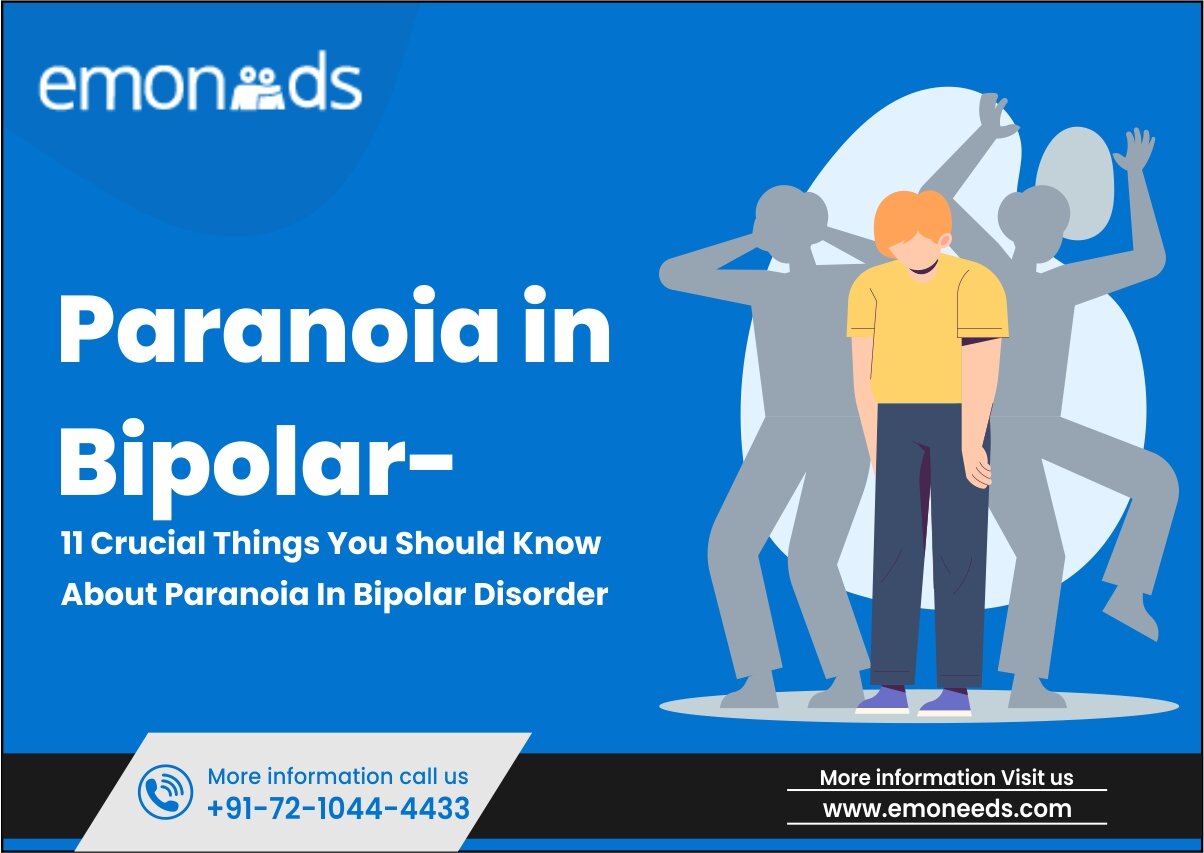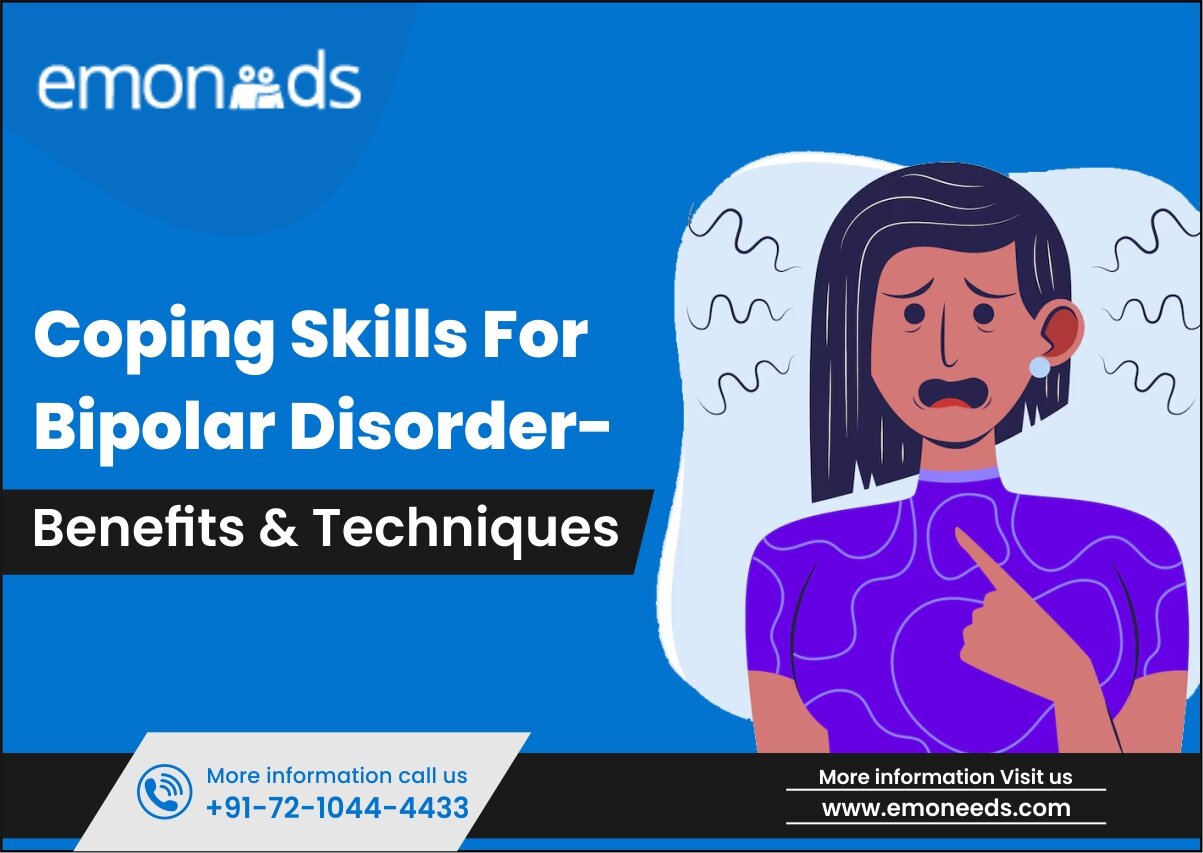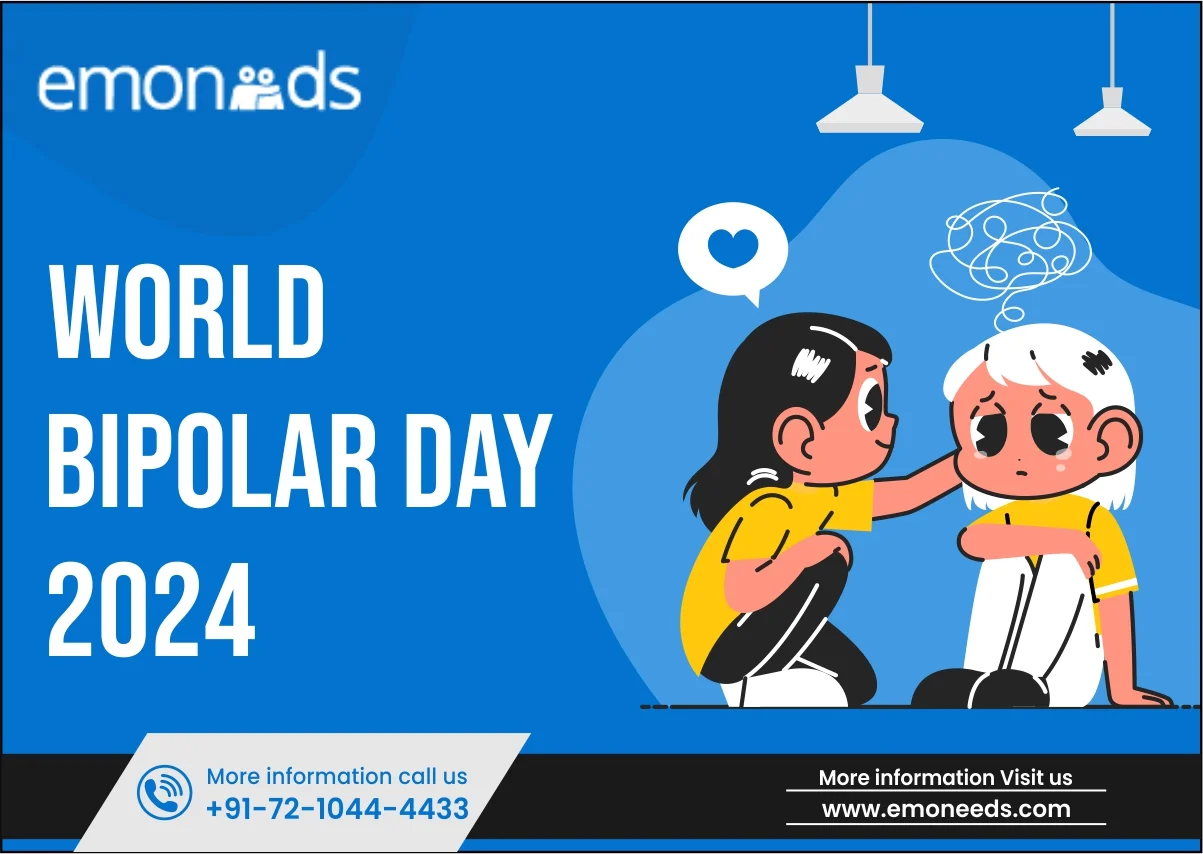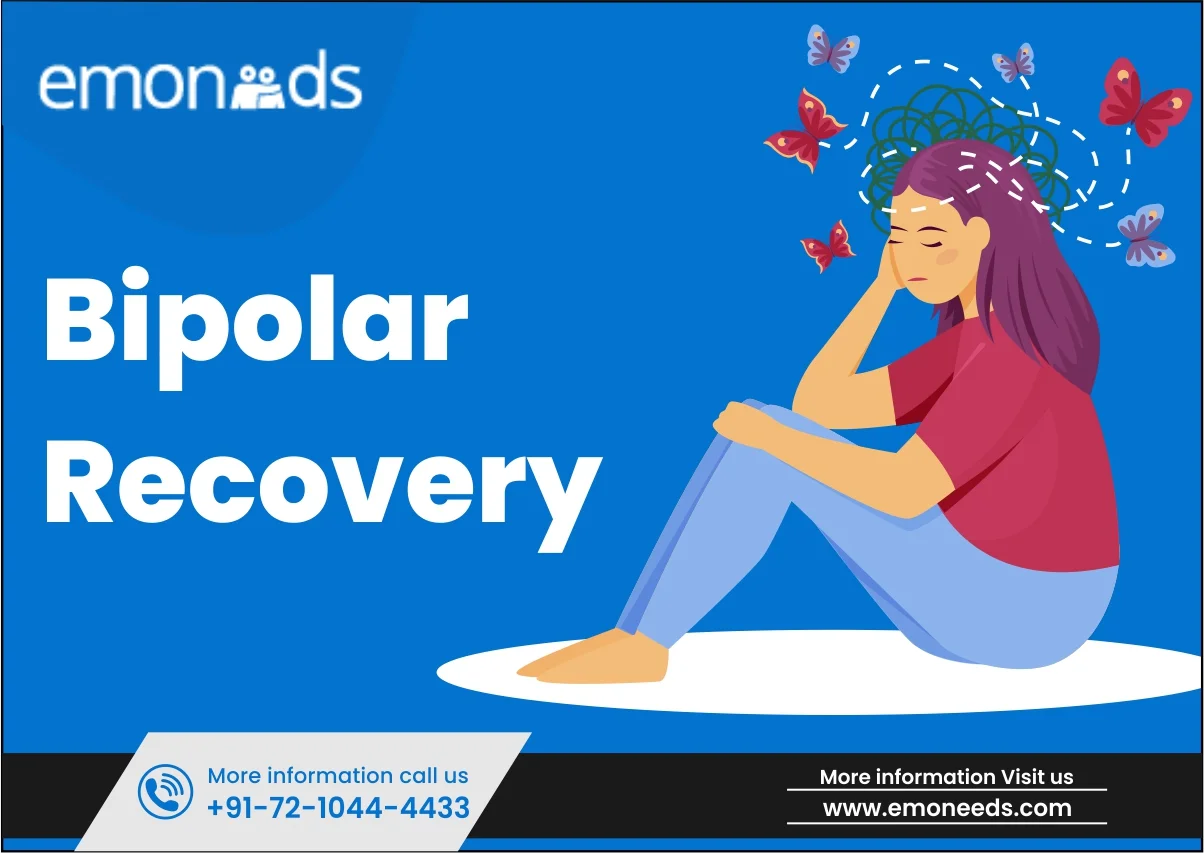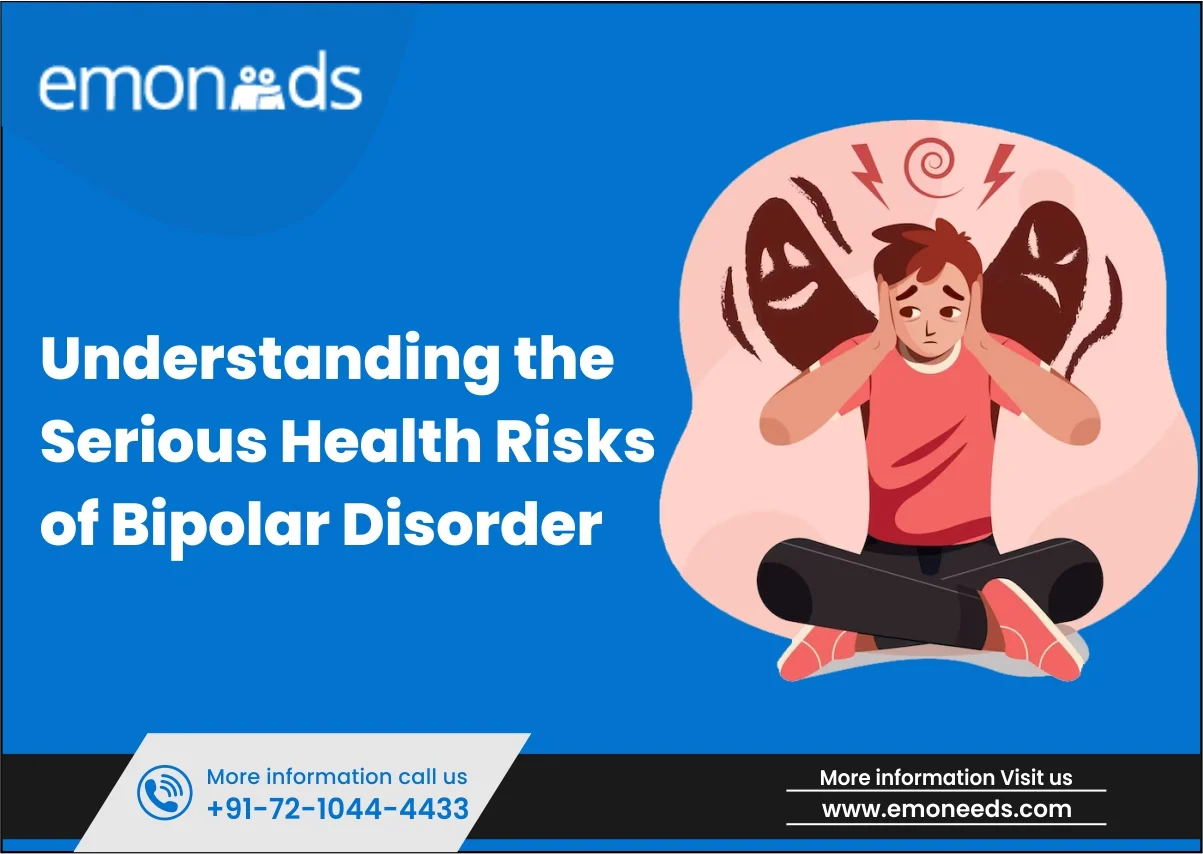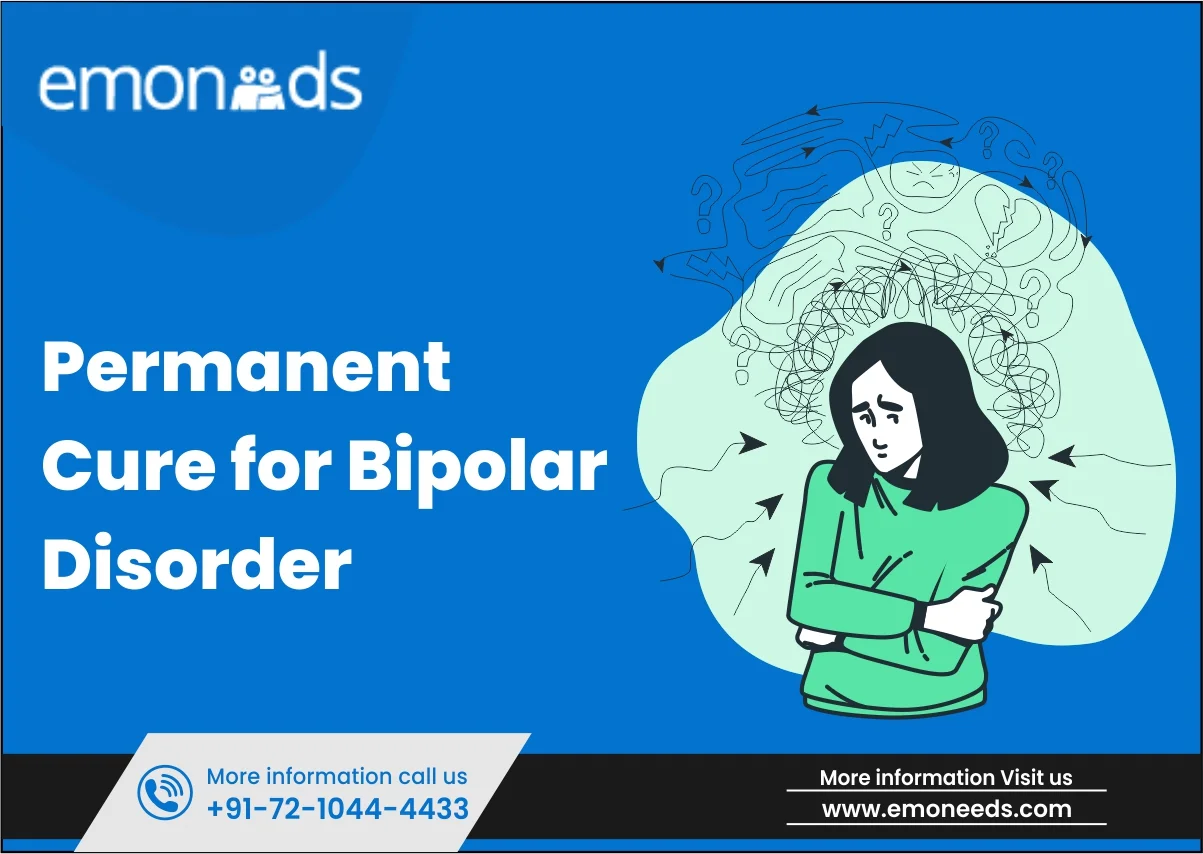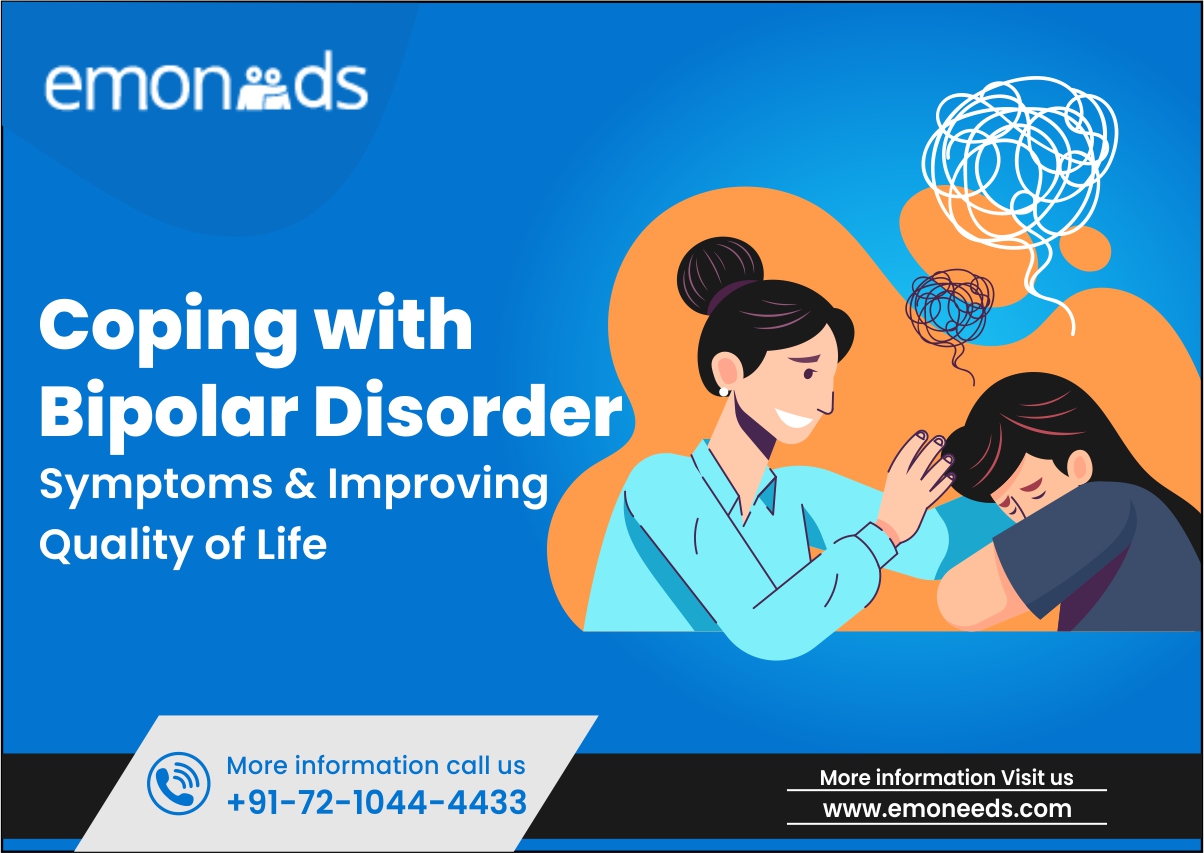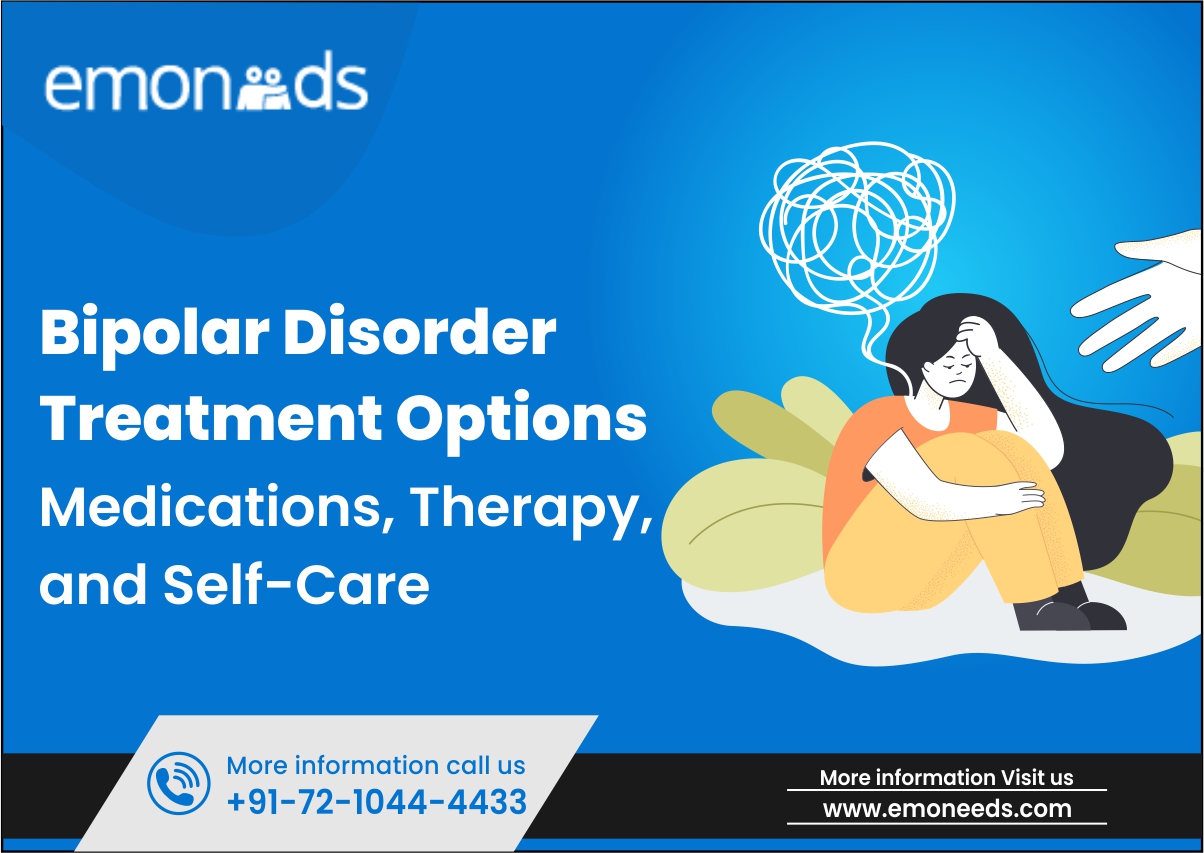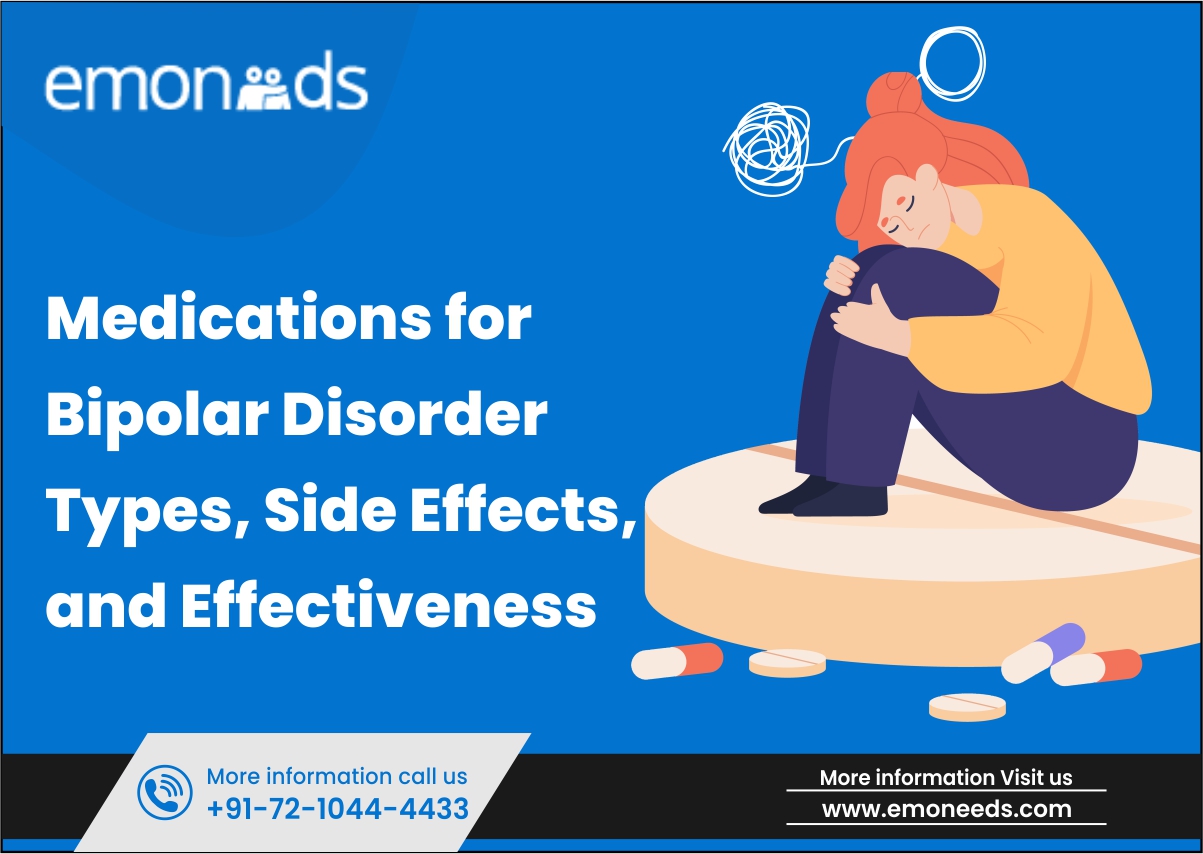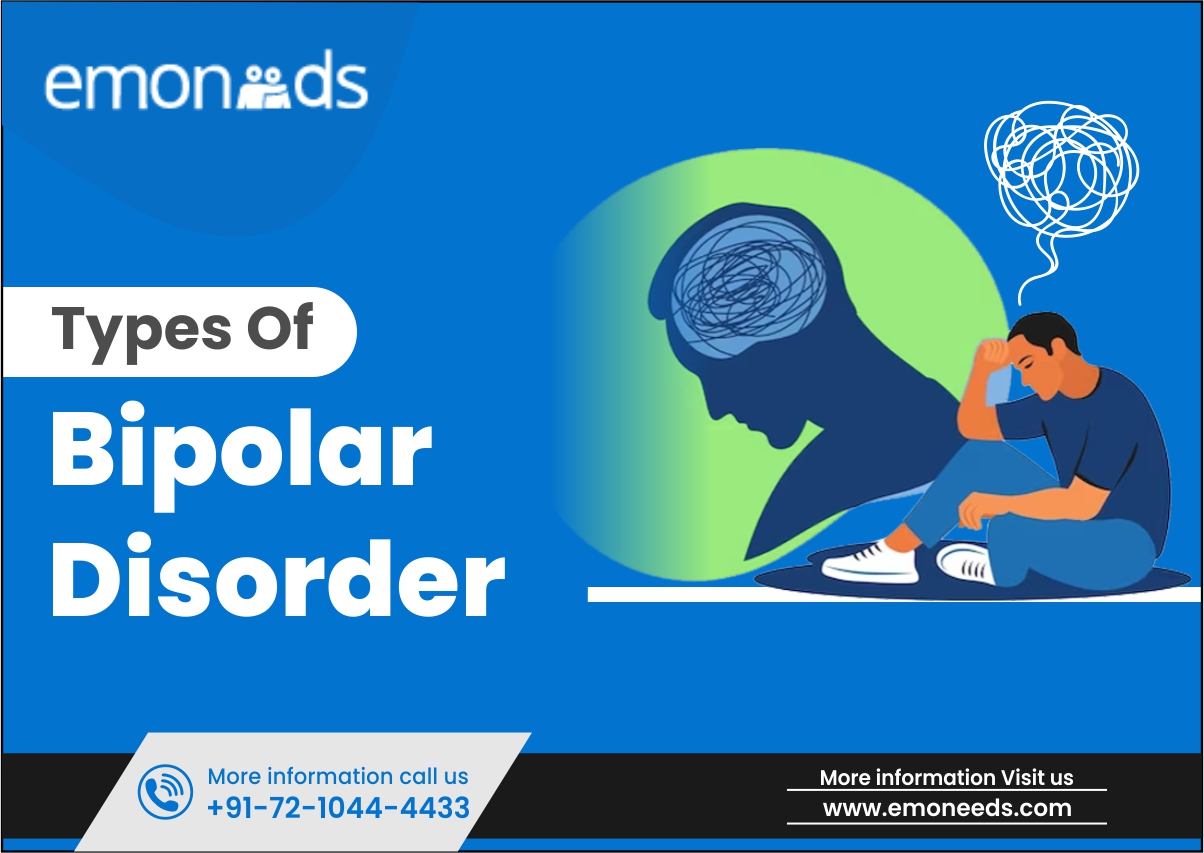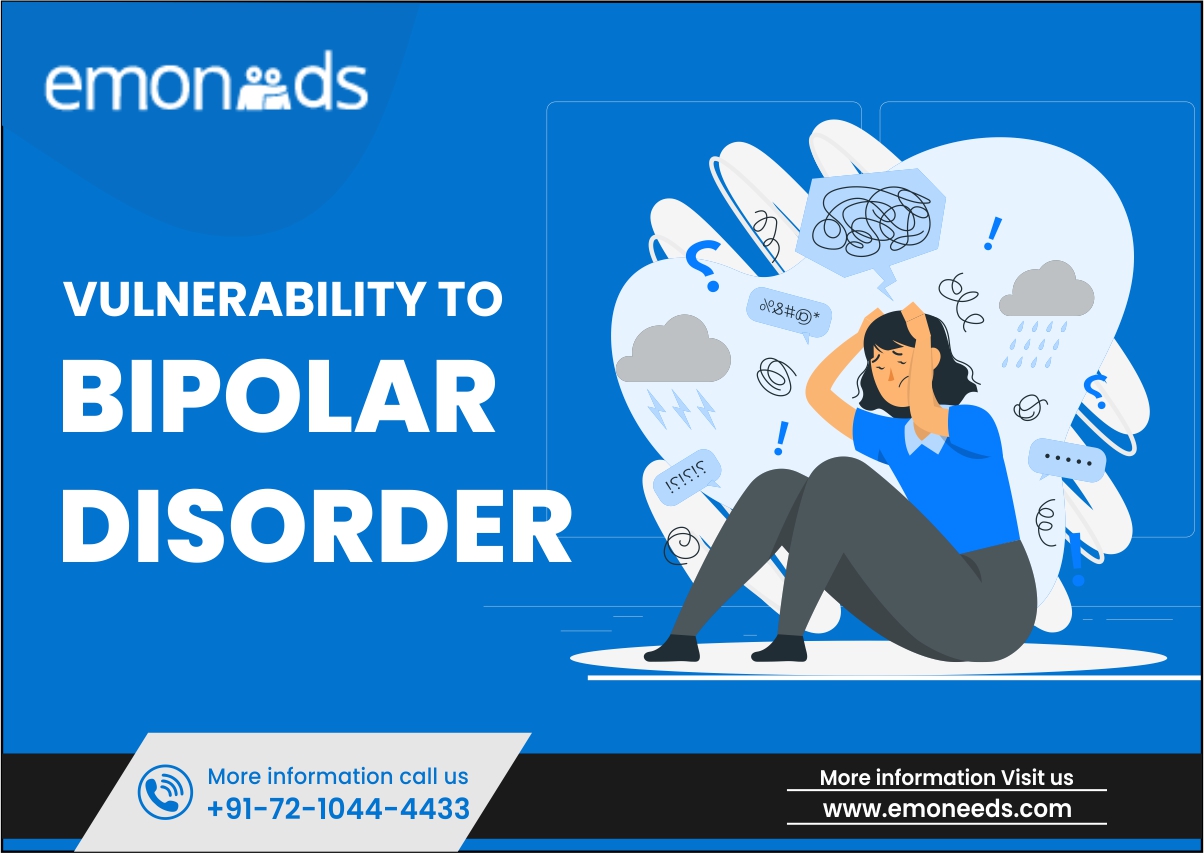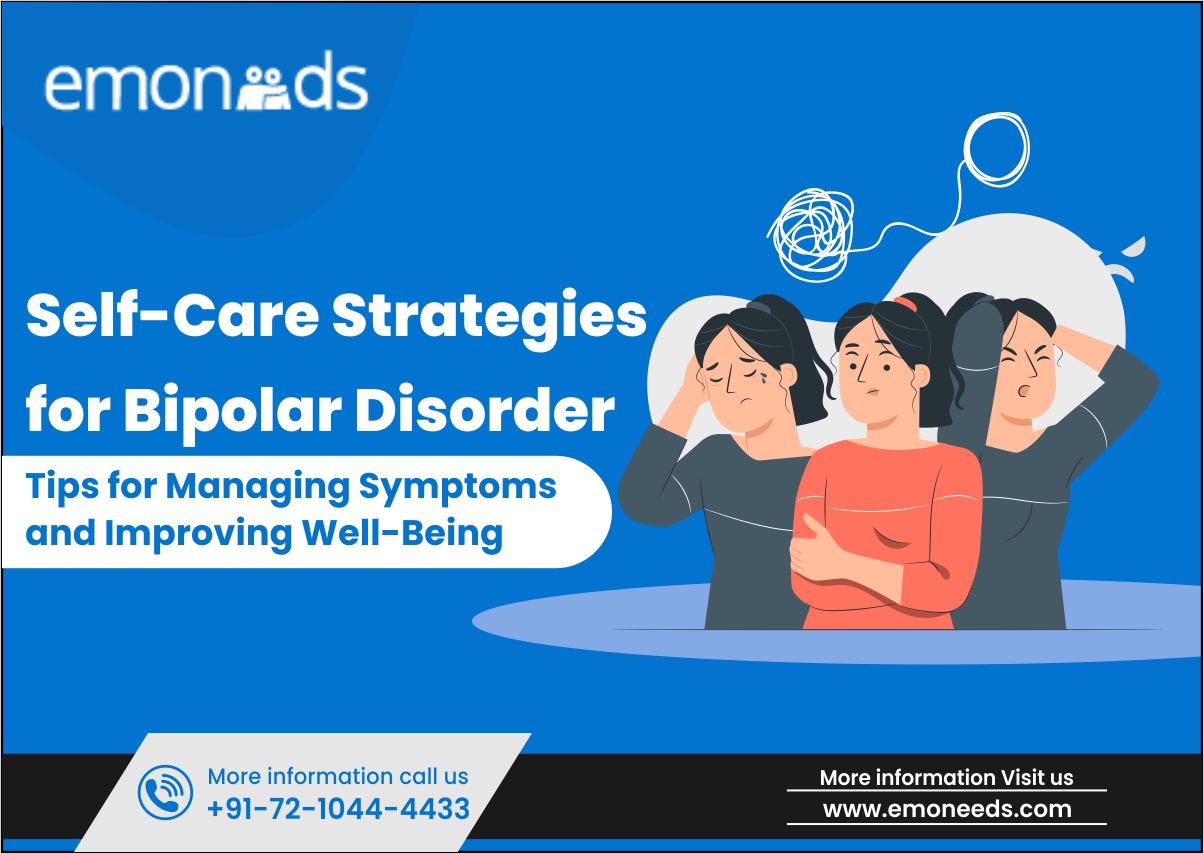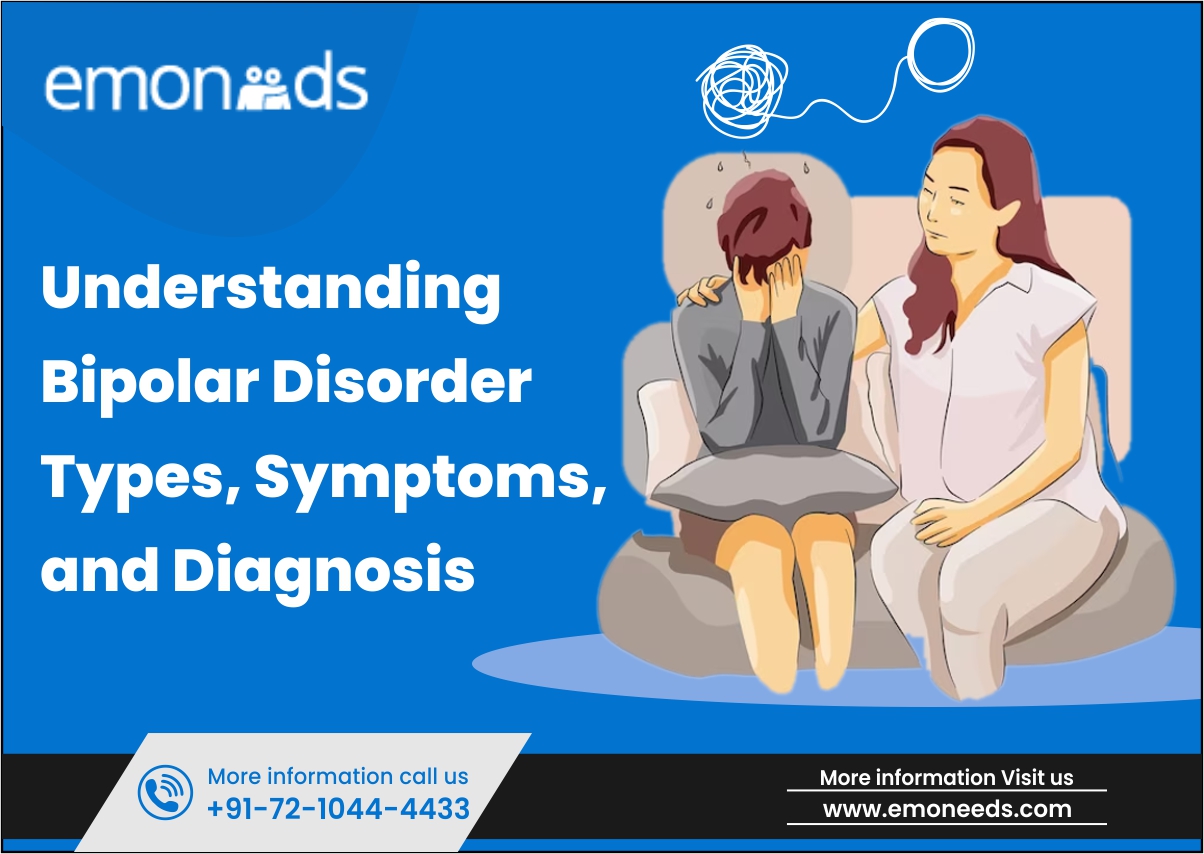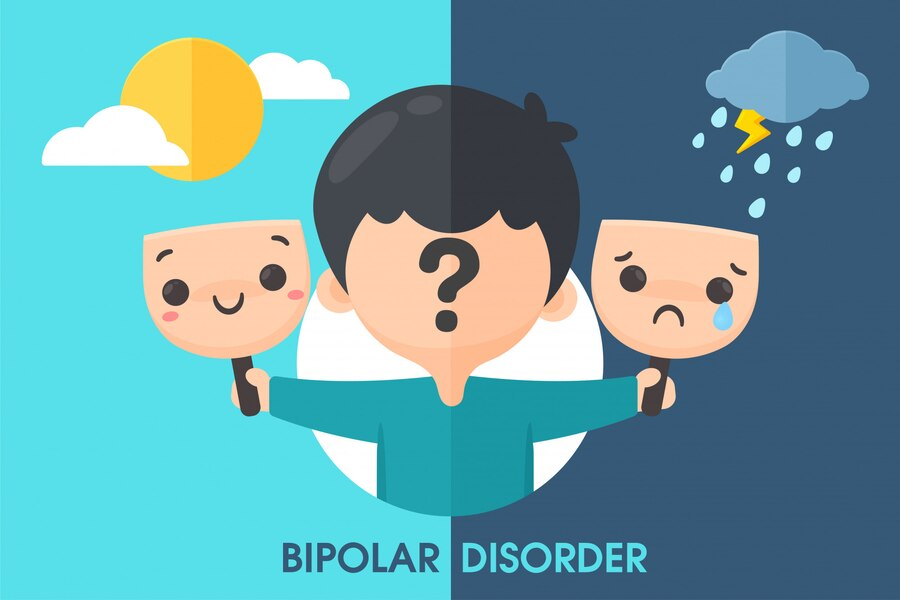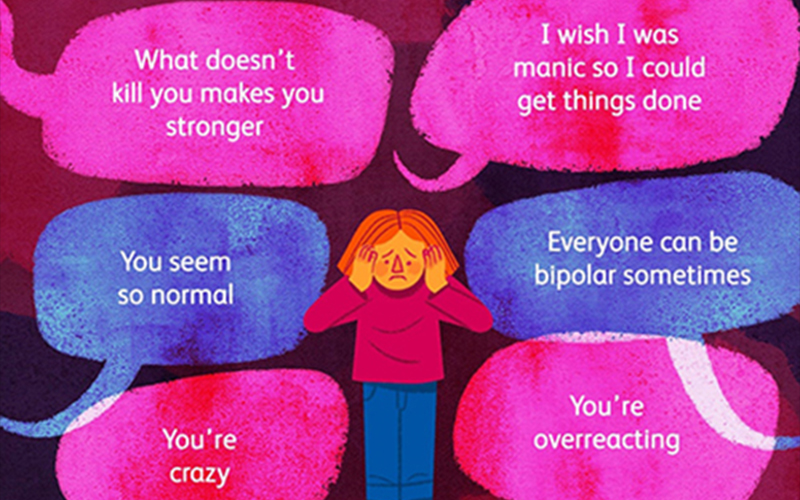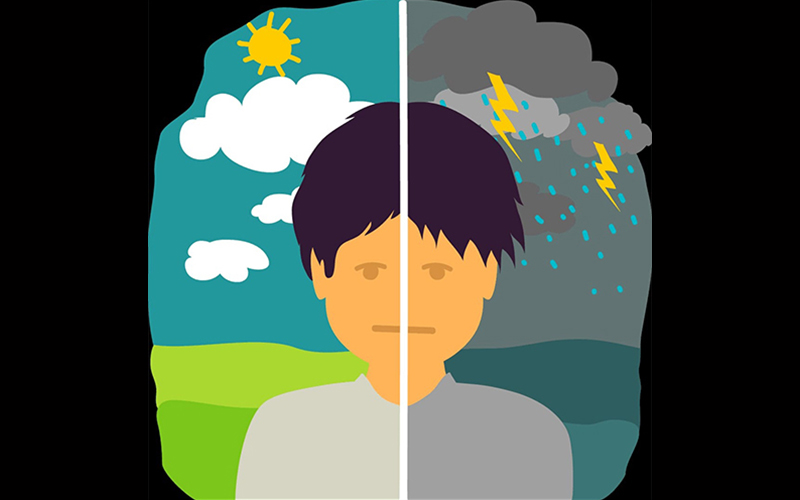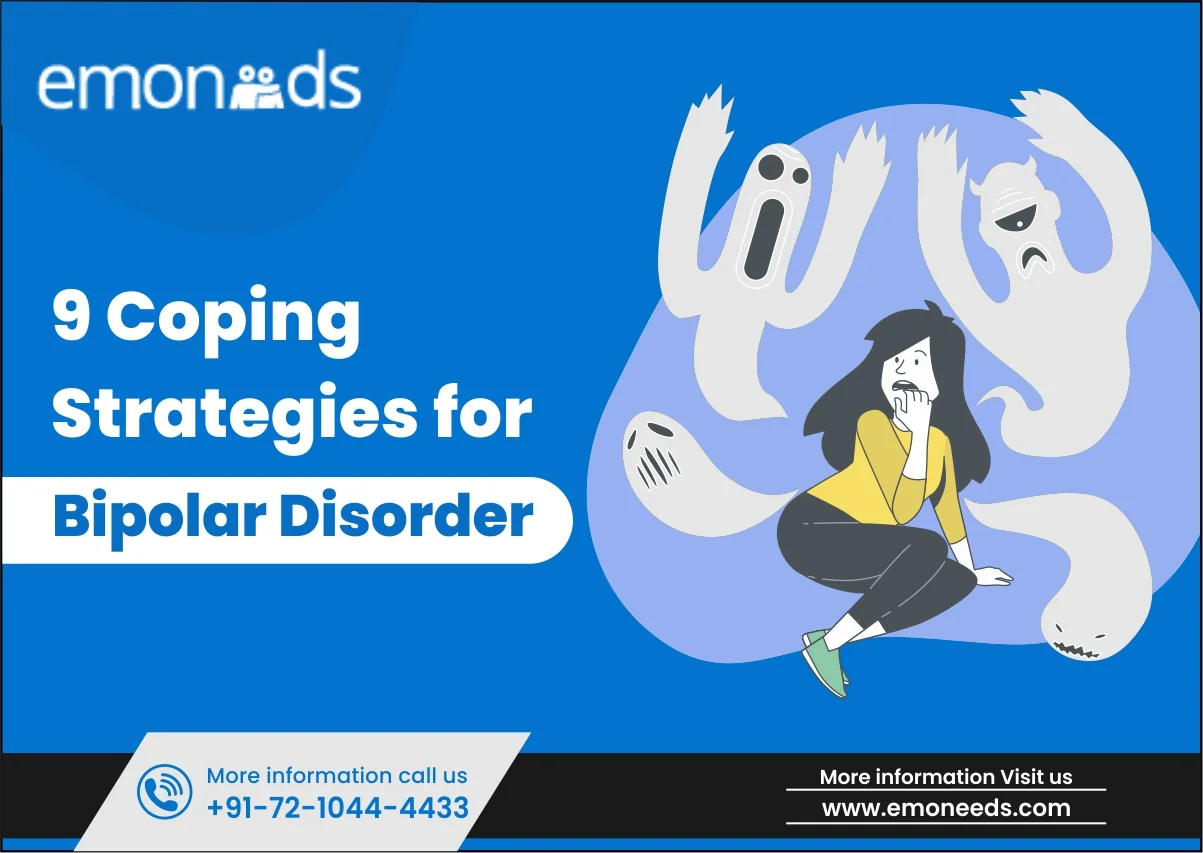
Living with bipolar disorder can present various challenges, impacting both daily life and overall well-being. Fluctuating mood swings, cycling between manic highs, depressive lows, and periods of stability, characterize this condition. These shifts can profoundly affect an individual’s life, relationships, and ability to function. These 9 coping strategies for bipolar disorder aims to provide practical strategies to empower individuals navigating bipolar disorder.
By focusing on actionable steps, Emoneeds goal is to offer tools and approaches that can be incorporated into daily life to manage bipolar disorder symptoms effectively.
Understanding Bipolar Disorder
Bipolar disorder is like a rollercoaster, swinging through distinct phases that define the emotional landscape. The manic phase brings a surge of energy, heightened euphoria, and racing thoughts, often leading to impulsive behavior. It’s a whirlwind of intensity that feels exhilarating yet can spiral out of control.
On the flip side, the depressive phase plunges into a deep abyss of sadness, fatigue, and isolation. It’s a heavy fog that blankets everything, making even the simplest tasks feel insurmountable. Amidst these extremes lies the stable phase, a respite from the turbulent peaks and valleys. However, maintaining stability requires vigilance and consistency, akin to walking on a tightrope.
Each phase poses unique challenges. Mania brings risks of recklessness and strained relationships, while depression casts a shadow over daily life, making it hard to find joy in anything. Stability is a delicate balance that demands constant effort. Navigating these phases is a relentless struggle, impacting relationships, work, and the essence of one’s being.
9 Best Coping Strategies for Bipolar Disorder
Here the 9 best coping skills for bipolar disorder. If you are suffering for bipolar disorder, these strategies can help you in managing this disorder.
1. Tracking Mood Changes
Keeping tabs on mood shifts is like having a trusty companion along for the ride through bipolar disorder’s highs and lows. Whether it’s jotting down notes in a journal or using a user-friendly mood-tracking app, this practice is a beacon in the sometimes tumultuous terrain of this condition. It’s about unraveling the triggers behind certain moods and spotting recurring patterns. These little details hold immense power—they pave the way for managing symptoms and gaining a clearer understanding of the complex landscape of bipolar disorder.
It’s not just about awareness; it’s about taking the reins of one’s mental well-being. Armed with these insights, navigating this journey becomes more assured, empowering a proactive and informed approach to handling everyday life with bipolar disorder.
2. Education and Self-Advocacy
Understanding bipolar disorder is like having a reliable compass to navigate life’s twists and turns. It goes beyond mere awareness; it’s a tool for empowerment. Armed with knowledge, individuals can become advocates for their needs within healthcare and social circles. Sharing their unique experiences ensures that concerns are heard and addressed effectively. This transforms mental health management into a collaborative effort, where individuals actively contribute to their well-being.
This approach fosters a supportive environment that values and respects their individuality. Education and self-advocacy become key instruments in the toolkit for a fulfilling journey toward mental health, where everyone plays a role in creating understanding and acceptance.
3. Safety Planning
Safety planning is like crafting a reliable lifeboat for stormy times rather than anticipating the worst. It goes beyond a mere roadmap; it’s a safety net, a comforting assurance amid the tumult of bipolar disorder. This process involves pinpointing emergency contacts, memorizing crisis hotlines, and mapping out concrete steps to navigate tough moments.
Safety planning helps in building a support system that stands strong in the face of adversity. In the midst of bipolar disorder’s challenges, a safety plan becomes a lifeline, a reminder that even in the darkest hours, one is not alone. It’s the security of knowing there’s a steadfast support system ready to weather the storm together.
4. Music for Mood Regulation
Music holds a remarkable power to shape how we feel. It is a personal mood manager—a toolkit for navigating the whirlwind of emotions that comes with bipolar disorder. Creating playlists tailored to different emotional states is like having a silent supporter in our daily journey.
These playlists aren’t just random collections of songs; they’re carefully curated to resonate with us. Some tracks lift our spirits during darker times, while others offer a gentle embrace when things feel overwhelming. Music taps into our emotions, becoming a refuge for soothing solace or an energy boost when needed. It’s a language that speaks directly to our hearts, giving us a way to express and stabilize our feelings amid the highs and lows. Whether it’s a stirring melody or lyrics that resonate, music becomes our unwavering ally in the unpredictable symphony of life.
5. Routine and Stability
Establishing a routine isn’t merely about repeating the same things daily; it’s more like securing stability amid the ups and downs of bipolar disorder. It is like setting a reliable pattern for sleep, meals, and daily activities, not just as habits but as anchors holding us steady. These routines aren’t boring; they’re our stability pillars. In a condition that often feels unpredictable, they offer something crucial: control and predictability.
Stability doesn’t just mean avoiding chaos; it means creating a base where we can navigate the complexities of bipolar disorder with a bit more confidence and certainty. By having a routine, we create a structure that helps us manage our days, making the unpredictable more manageable and providing a steadying force in a sometimes turbulent sea.
6. Healthy Lifestyle Choices
In the battle against bipolar disorder, making simple yet powerful lifestyle choices becomes crucial. Imagine these choices as strong supporters in your journey to stability and well-being.
Firstly, consider your plate. Opting for a balanced diet, rich in fruits, veggies, whole grains, and lean proteins fuels your body and mind with the right nutrients. This can aid in balancing your moods and boosting your energy levels, fostering a sense of wellness.
Next, let’s talk about movement. Regular exercise, even a simple daily walk or some light yoga, can work wonders. It not only sheds calories; it releases those feel-good chemicals in your brain, uplifting your mood, and reducing stress.
And then, there’s sleep. Getting enough quality sleep isn’t a luxury; it’s a necessity. It acts as a reset button for your mind, improving focus, mood stability, and overall mental health.
These aren’t complex changes; they’re everyday choices that, when made consistently, wield immense power in promoting a healthier, more balanced life amid bipolar disorder.
7. Psychotherapy and Counseling
Psychotherapy and counseling become more than just sessions; they’re personalized toolkits for sailing through the complexities of bipolar disorder. These sessions are tailored to suit individual needs, offering valuable strategies to manage symptoms and enhance overall life quality. It is a collaborative journey where individuals uncover coping methods, build resilience, and find a path toward a more fulfilling life.
In these therapy sessions, individuals get a safe space to express themselves without judgment. Therapists, often referred to as counselors, use various approaches to help individuals understand their emotions and behaviors better. They learn practical techniques to navigate mood swings, identify triggers, and develop healthier thought patterns. These conversations help in learning practical skills that can be used in everyday life. The goal is to empower you to manage the challenges bipolar disorder presents.
8. Medication Adherence and Therapy
Ensuring you stick to the medication prescribed is a key part of dealing with bipolar disorder. These meds act as stabilizers, forming the base for emotional stability. Alongside, therapy sessions play a crucial role. They’re not just about professional guidance but also about picking up tools to handle life’s hurdles. Combining the two – sticking to meds and attending therapy – creates a solid, all-round approach for long-term well-being.
Prescribed medications help keep those mood swings in check, making it easier to navigate through daily life. And therapy sessions? They help you to learn ways to cope, manage stress, and deal with those tricky moments when everything feels overwhelming.
9. Utilizing Online Mental Health Platforms
In today’s digital era, finding support for managing bipolar disorder has taken a significant leap forward with the advent of online mental health platforms like Emoneeds. These platforms offer a comforting bridge for individuals seeking professional mental health assistance. They go beyond mere convenience by providing a dedicated space where therapy, consultations with psychiatrists, and a gamut of tailored mental health services are available at one’s fingertips.
The seamless accessibility of these services ensures that individuals can seek help without the hassle of scheduling appointments or commuting, especially vital for those dealing with the unpredictable nature of bipolar disorder.
These professional online platforms foster a supportive environment that complements the individual’s ongoing efforts in managing their mental health. It’s a lifeline that syncs with the rhythms of their journey towards stability and well-being.
Why Choose Emoneeds?
In the labyrinth of mental health, Emoneeds stands as a guiding light, offering more than just a service—it’s a lifeline. With a commitment to personalized care and understanding the unique journey of bipolar disorder, Emoneeds provides a space where therapy, psychiatric consultations, and comprehensive mental health services seamlessly intertwine.
It’s about more than just accessibility; it’s the assurance of support tailored to individual needs. Emoneeds bridges the gap between convenience and genuine care, embracing the digital era while upholding the human touch.
Navigating bipolar disorder is a journey, and choosing Emoneeds is selecting a companion for that journey—a partner committed to walking alongside and providing the support needed. It’s about finding a place where professional guidance meets compassionate understanding. In the world of online mental health platforms, Emoneeds stands out, not just as a service provider but as a beacon of empathy and assistance.
Visit Emoneeds today and discover the personalized support you deserve. Your path to stability and well-being starts with a simple click.
